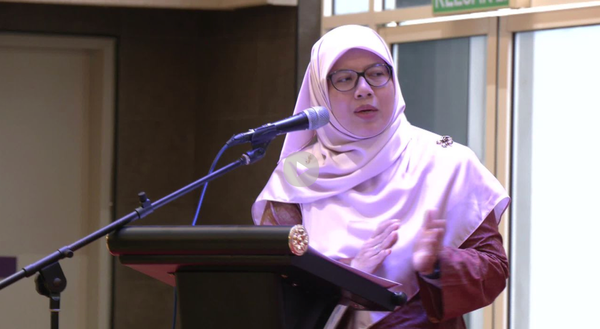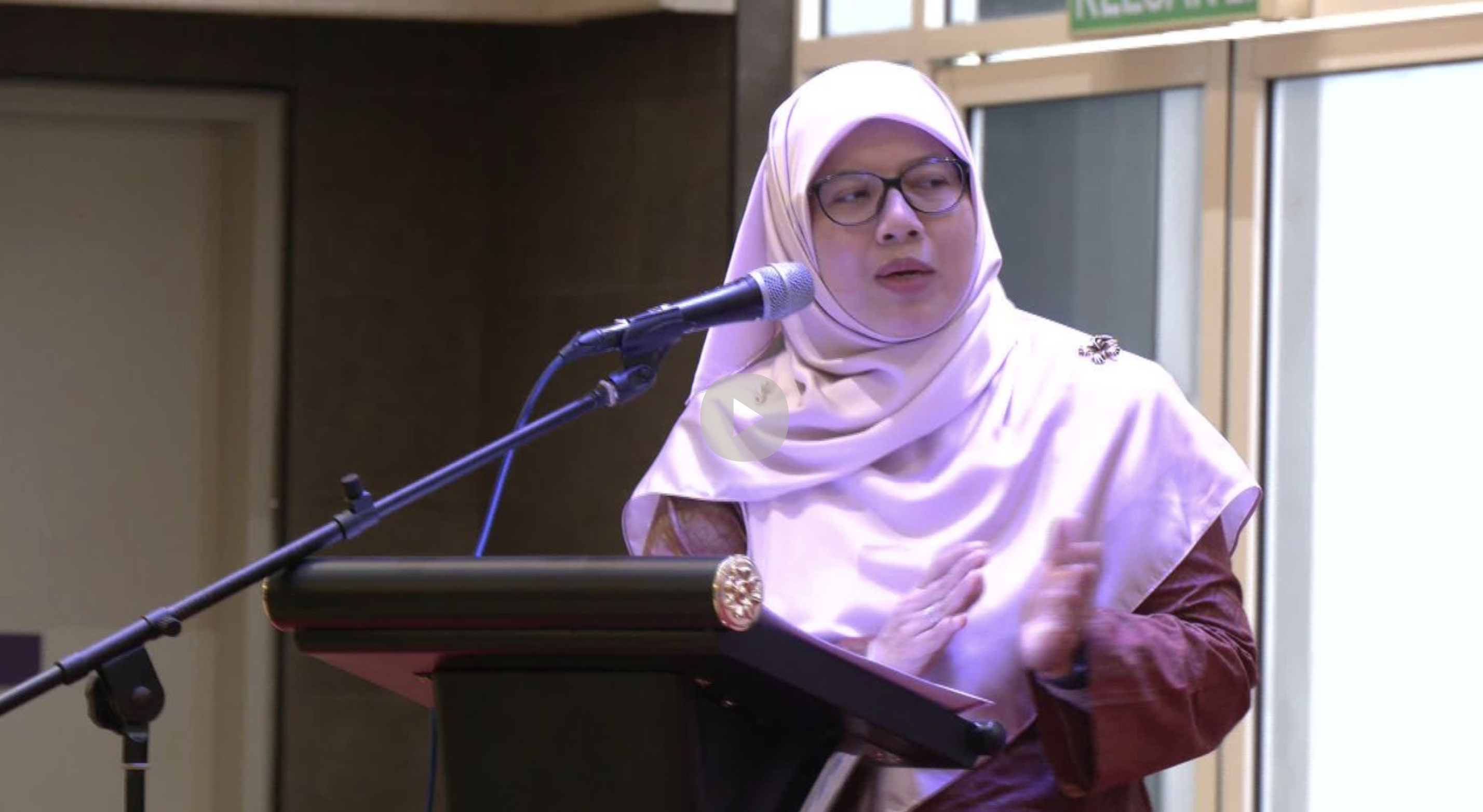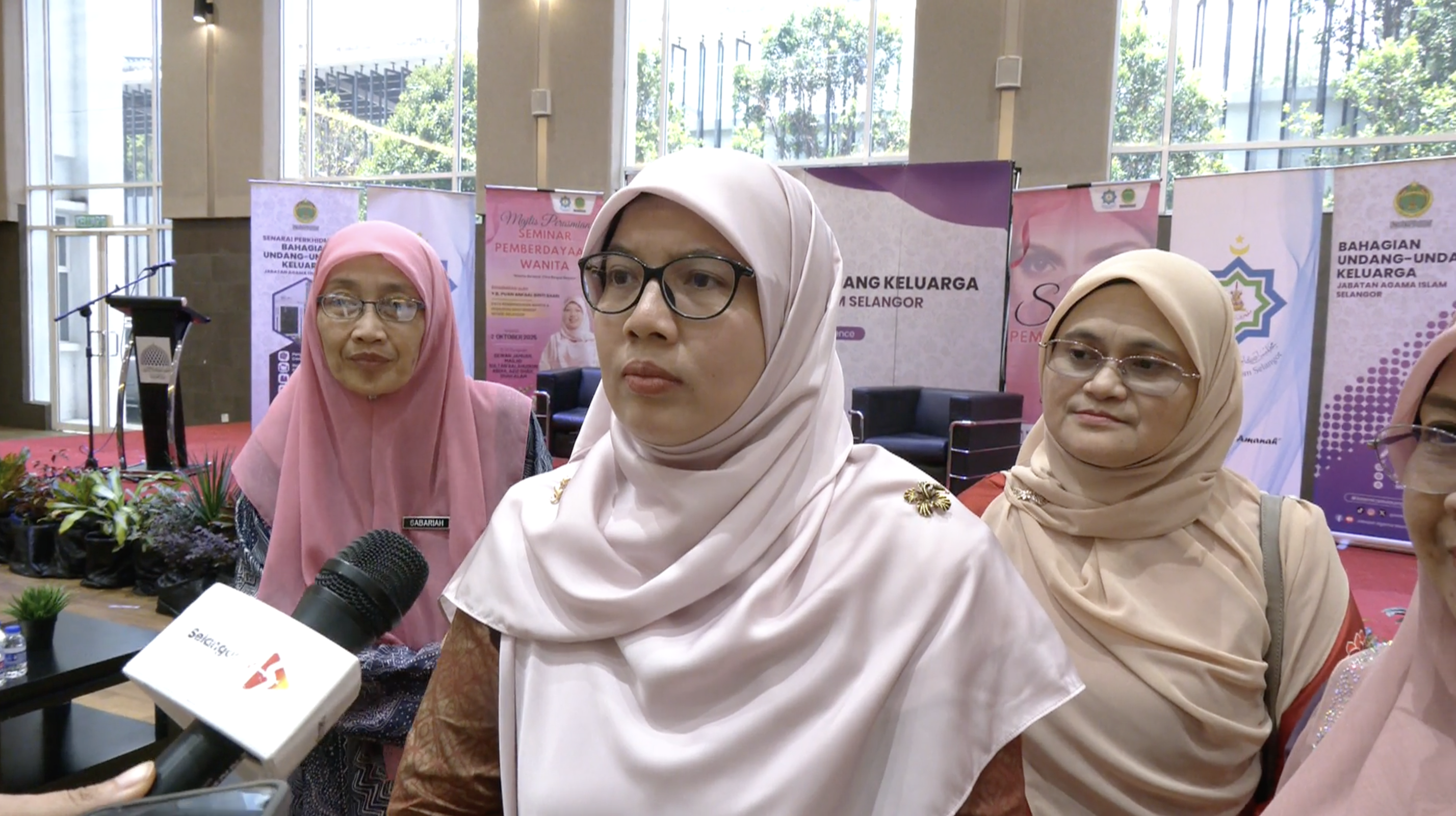SHAH ALAM, Oct 2 — Women should not be sidelined from contributing to activism and nation-building simply because of family responsibilities, said state executive councillor for women empowerment and welfare Anfaal Saari.
She said both roles can be balanced with the right policies and shared support systems, adding that women often face a “motherhood penalty” after marriage or childbirth, limiting their opportunities to fully participate in public life.
“Women should not be seen as second-class citizens once they marry or have children,” she told Media Selangor after officiating the closing ceremony of the Women Empowerment Seminar at the Sultan Salahuddin Abdul Aziz Shah Mosque here today.
The event was organised by the Selangor Islamic Religious Department (Jais), in collaboration with the Selangor Islamic Religious Council (Mais).
“We do not want them to feel restricted from being brave, or from contributing equally to the state and nation,” she added.
Anfaal was commenting on the Global Sumud Flotilla (GSF) humanitarian mission to Gaza, which saw the involvement of several female activists, including Malaysians.
Earlier, it was reported that many GSF vessels were intercepted by Israeli forces, who detained those onboard.
Anfaal said both government policies and societal mindsets must evolve to ensure women are empowered, not penalised, for balancing multiple roles.
“Care responsibilities should never be seen as the sole duty of women. It is a shared responsibility between men and women, families, communities, and the government.
“We are all caregivers, and, one day, each of us will also need care,” she said.
Earlier in her speech, Anfaal drew parallels between the struggles of today’s women activists and those of historic female figures who fought for justice.
Citing examples such as volunteer paramedic Razan al-Najjar, journalist Shireen Abu Akleh, and activist Rachel Corrie — young women who were killed by Israeli forces for their roles in the Palestinian struggle — Anfaal said their courage should serve as an inspiration to Malaysian women.
“These stories prove that women are capable of fighting for justice and truth. In Islam, too, women have always played vital roles in leadership, trade, and scholarship.
“Nusaybah Ka‘ab, Sayyidatina Khadijah, and Sayyidatina Aisyah are clear examples,” she said, referring to the courage and devotion of early Muslim women who shaped the course of Islamic history.
The Women Empowerment Seminar, themed “Wanita Berdaya, Citra Bangsa Berdaya”, gathered women from state agencies, educators, NGOs, and community representatives to discuss empowerment and reinforce women’s role in society.
Anfaal said the programme is timely as women continue to face challenges in balancing activism with personal and family commitments.
“Efforts to enlighten women with knowledge and current issues are crucial. With the right support, women can stand alongside men to shape a progressive society,” she said.



